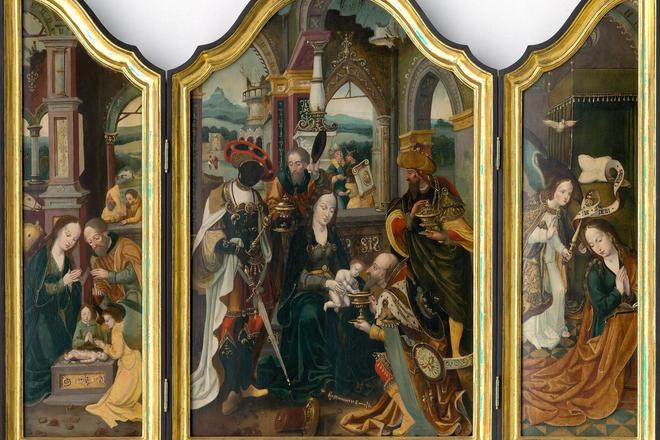Something suspicious is going on with an old and highly significant work of art, with police forces involved. Hidden away—no one knows where it is or what its fate will be. No, this is not a summary of the events surrounding the rare Donatello bust taken from Levoča in May by Lukáš Machala, the Culture Ministry’s chief of staff, accompanied by members of a special police unit.
Thirty years ago, the Slovak Information Service (SIS), then led by Ivan Lexa, staged a fake sale of an early modern triptych titled The Adoration of the Three Kings.
The operation was intended to discredit Bishop Rudolf Baláž of Banská Bystrica. After publicly voicing support for then-president Michal Kováč—who had become politically inconvenient—Baláž found himself targeted by the government of Vladimír Mečiar.
This was the first major smear campaign orchestrated by the SIS under Lexa. It took place just 49 days before the president’s son was kidnapped.
The rare triptych belonged to the Banská Bystrica Bishop’s Office. In the summer of 1995, the bishop decided to sell the painting in order to repay a loan taken out for the construction of a seminary in Badín. A copy of the work was commissioned to remain in its place.
Orchestrated by the SIS
The SIS exploited the situation by introducing one of their agents, Ján T., posing as a Swiss buyer under the alias Thomas Grabner. The objective was to create the illusion that the Bishop’s Office was attempting to illegally sell and smuggle a cultural treasure out of Slovakia.
The sale was arranged for July 14, 1995 in Žiar nad Hronom, near Banská Bystrica. Restorer Ivan Škandík from nearby Kremnica acted as the intermediary. The asking price was set at $200,000. In addition to the triptych, two Baroque sculptures were also being sold.
By deploying an agent as a buyer—something the SIS had no legal authority to do—and conducting surveillance without approval, the SIS violated the law. They had requested permission from the Regional Court in Banská Bystrica, but despite pressure from Lexa’s feared deputy, Jaroslav Svěchota, judge Ján Hrubala denied the request.
“He woke me up at four in the morning. He said it was in the national interest and urged me to grant permission,” Hrubala said in an interview with Sme nearly 30 years later.


